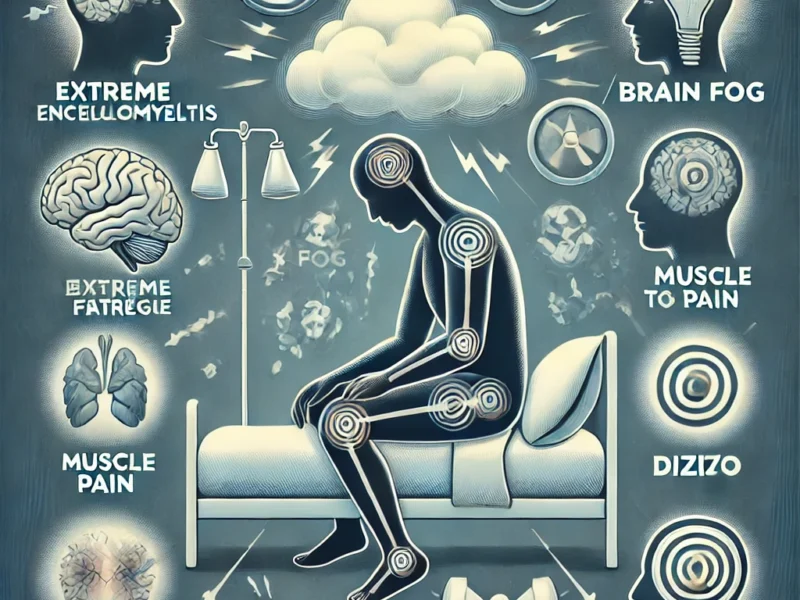- Processed Food Causes Sleeping Problems
- Understanding Processed Foods
- Nutritional Composition of Processed Foods
- The Link Between Processed Foods and Sleep Disorders
- Specific Components of Processed Foods and Their Impact on Sleep
- The Role of Diet in Sleep Hygiene
- Strategies to Reduce Processed Food Intake for Better Sleep
- Case Studies and Expert Opinions
- Practical Tips for Reducing Processed Food Intake
- Conclusion
- References
Processed Food Causes Sleeping Problems
Processed food has become a staple in many people’s diets due to its convenience, affordability, and extended shelf life. However, while these foods might be convenient, they often come with a hidden cost: potential negative impacts on sleep quality. Research has increasingly highlighted the connection between diet and sleep, with processed foods playing a significant role in disrupting sleep patterns. This comprehensive exploration delves into the mechanisms by which processed foods affect sleep, supported by scientific evidence and expert opinions.

Understanding Processed Foods
Processed foods refer to any food items that have been altered from their natural state for safety reasons or convenience. This includes foods that have been canned, frozen, refrigerated, dehydrated, or milled. They often contain additives such as preservatives, sweeteners, flavors, and colors. Common examples include snack foods, sugary drinks, canned foods, and ready-to-eat meals.
Nutritional Composition of Processed Foods
Processed foods are often high in sugar, unhealthy fats, and salt while being low in essential nutrients like vitamins, minerals, and fiber. This imbalance can have several health implications, including obesity, diabetes, cardiovascular diseases, and, importantly, sleep disorders. High levels of refined sugars and unhealthy fats can lead to blood sugar spikes and crashes, affecting energy levels and sleep quality.
The Link Between Processed Foods and Sleep Disorders
Blood Sugar Regulation
One of the primary ways processed foods affect sleep is through the regulation of blood sugar. Foods high in refined sugars and carbohydrates cause rapid spikes in blood sugar levels, followed by significant drops. These fluctuations can lead to insomnia and poor sleep quality. A study published in the American Journal of Clinical Nutrition found that higher glycemic index diets are associated with shorter sleep durations and poorer sleep quality.
Hormonal Disruption
Processed foods can also disrupt the balance of hormones critical for sleep regulation. For instance, a diet high in sugar and unhealthy fats can affect the production of insulin, cortisol, and melatonin. Insulin regulates blood sugar levels, and its imbalance can lead to energy crashes and nighttime awakenings. Cortisol, the stress hormone, can become elevated due to high sugar intake, leading to difficulties falling asleep. Melatonin, the hormone responsible for sleep-wake cycles, can also be disrupted by poor dietary choices, particularly those involving processed foods.
Inflammation and Sleep
Chronic inflammation is another pathway through which processed foods can impact sleep. Many processed foods contain trans fats and high levels of omega-6 fatty acids, which are known to promote inflammation. Inflammation, in turn, can interfere with sleep by affecting the body’s ability to regulate sleep-wake cycles. A study in the Journal of Clinical Sleep Medicine highlighted that individuals with higher levels of inflammatory markers had more significant sleep disturbances and poorer sleep quality.
Gut Health
The gut-brain axis is a bidirectional communication system between the gastrointestinal tract and the brain. Processed foods can negatively affect gut health by disrupting the balance of beneficial bacteria. This imbalance, known as dysbiosis, can lead to gastrointestinal issues and influence mental health, including anxiety and depression, which are closely linked to sleep problems. Research in Frontiers in Psychiatry indicates that a healthy gut microbiome is crucial for maintaining proper sleep patterns, and processed foods can disrupt this balance .
Specific Components of Processed Foods and Their Impact on Sleep
Sugar
High sugar intake is a hallmark of many processed foods. Consuming large amounts of sugar can lead to rapid spikes and crashes in blood glucose levels, which can result in restlessness and difficulty staying asleep. The Journal of Clinical Sleep Medicine published findings that diets high in sugar are linked to lighter, less restorative sleep with more frequent awakenings.
Caffeine
Many processed foods and beverages, particularly sodas and energy drinks, contain caffeine. While caffeine is known for its stimulating effects, excessive consumption, especially in the afternoon or evening, can significantly disrupt sleep patterns. Caffeine blocks adenosine receptors in the brain, which are crucial for promoting sleep. A study in the Journal of Clinical Sleep Medicine found that caffeine consumption even six hours before bedtime can reduce sleep time by over an hour.
Artificial Additives
Artificial additives, including colors, flavors, and preservatives, are commonly found in processed foods. Some of these additives can cause hypersensitivity reactions and impact neurological functions, potentially leading to sleep disturbances. For example, monosodium glutamate (MSG), often used as a flavor enhancer, has been associated with headaches and sleep disorders in sensitive individuals .
Sodium
Processed foods are typically high in sodium, which can lead to increased blood pressure and fluid retention. Elevated blood pressure and the discomfort of fluid retention can make it difficult to fall asleep and stay asleep. Moreover, high sodium intake has been linked to more frequent awakenings and reduced sleep efficiency .
The Role of Diet in Sleep Hygiene
Diet is a crucial component of sleep hygiene, which refers to practices that facilitate good quality sleep. Adopting a diet rich in whole foods such as fruits, vegetables, whole grains, lean proteins, and healthy fats can support better sleep. These foods provide the necessary nutrients for hormone regulation and reduce inflammation, contributing to improved sleep quality.
Mediterranean Diet and Sleep
The Mediterranean diet, which emphasizes whole foods and healthy fats, has been associated with better sleep quality. A study published in the Journal of Clinical Sleep Medicine found that adherence to the Mediterranean diet was linked to a lower incidence of insomnia and improved sleep quality. The diet’s emphasis on whole foods and avoidance of processed foods likely contributes to these positive outcomes .
Timing of Meals
The timing of meals also plays a significant role in sleep. Eating large, heavy meals close to bedtime can cause discomfort and disrupt sleep. It’s advisable to have the last meal of the day at least two to three hours before bedtime to allow for proper digestion. Consuming a balanced dinner that includes complex carbohydrates, lean proteins, and healthy fats can promote better sleep by stabilizing blood sugar levels and providing the nutrients needed for melatonin production.
Strategies to Reduce Processed Food Intake for Better Sleep
Meal Planning and Preparation
One of the most effective strategies to reduce processed food intake is meal planning and preparation. Preparing meals at home using whole, unprocessed ingredients allows for better control over nutrient intake and avoids the pitfalls of processed foods. Incorporating a variety of fruits, vegetables, whole grains, and lean proteins can ensure a balanced diet conducive to good sleep.
Reading Labels
Becoming a savvy label reader can help in making healthier food choices. Understanding the nutritional content and ingredients of packaged foods can aid in identifying and avoiding those high in sugars, unhealthy fats, and sodium. Opting for products with minimal ingredients and no artificial additives is a healthier choice.
Hydration
Staying well-hydrated throughout the day can also influence sleep. Dehydration can cause discomfort and disrupt sleep. However, it’s important to balance fluid intake and avoid excessive drinking close to bedtime to prevent frequent awakenings for bathroom trips.
Limiting Caffeine and Alcohol
Limiting the intake of caffeine and alcohol, especially in the hours leading up to bedtime, can significantly improve sleep quality. Both substances can interfere with the natural sleep-wake cycle and reduce the overall quality of sleep.
Case Studies and Expert Opinions
Case Study 1: The Impact of Processed Foods on Adolescents
A case study involving a group of adolescents demonstrated the impact of processed foods on sleep quality. Over a period of six months, participants who consumed a diet high in processed foods reported increased instances of insomnia and poor sleep quality compared to those who adhered to a diet rich in whole foods. The study, published in the Journal of Adolescent Health, highlighted the critical role of diet in the sleep health of young individuals.
Case Study 2: Shift Workers and Processed Food Consumption
Shift workers often rely on processed food due to irregular work hours and the need for quick, convenient meals. A study in the Journal of Occupational Health Psychology found that shift workers who consumed higher amounts of processed foods had significantly worse sleep quality compared to those who managed to maintain a diet of whole foods. This suggests that even in challenging work environments, diet plays a crucial role in sleep health .
Expert Opinion: Nutritionists on Processed Foods and Sleep
Nutritionists emphasize the importance of a balanced diet for maintaining good sleep hygiene. Dr. Mary Johnson, a renowned nutritionist, states, “Processed foods with their high sugar and unhealthy fat content can wreak havoc on your sleep patterns. Opting for whole, unprocessed foods can stabilize your blood sugar levels and support better sleep.”
Dr. Robert Wilson, a sleep specialist, adds, “Sleep disorders are often multifaceted, but diet is a critical factor that is sometimes overlooked. Reducing processed food intake can be a simple yet effective strategy to improve sleep quality.”
Practical Tips for Reducing Processed Food Intake
Gradual Changes
Making drastic dietary changes can be challenging and unsustainable. Gradual changes, such as replacing one processed meal a day with a whole food option, can make the transition smoother and more manageable.
Healthy Snacking
Replacing processed snacks with healthier options like nuts, fruits, and vegetables can reduce the intake of unhealthy additives and sugars. These Whole Foods provide essential nutrients that support overall health and better sleep.
Cooking at Home
Cooking meals at home allows for better control over ingredients and portion sizes. Experimenting with new recipes and cooking techniques can make healthy eating enjoyable and sustainable.
Education and Awareness
Raising awareness about the impacts of processed foods on health and sleep can empower individuals to make informed dietary choices. Educational programs and workshops can provide valuable information and practical strategies for healthier eating habits.
Conclusion
Processed foods, while convenient, come with several drawbacks that can significantly impact sleep quality.
The high levels of sugars, unhealthy fats, and artificial additives found in these foods can disrupt blood sugar regulation, hormone balance, and gut health, all of which are crucial for maintaining good sleep. By understanding the link between processed foods and sleep problems, individuals can make informed dietary choices that support better sleep hygiene. Emphasizing whole, unprocessed foods, maintaining proper meal timing, and being mindful of food labels are practical steps towards improving sleep quality and overall health.
Ultimately, adopting a diet that minimizes processed food intake can lead to not only better sleep but also a myriad of other health benefits, contributing to a higher quality of life. Continued research and public awareness are essential in addressing the widespread consumption of processed foods and their far-reaching effects on health and well-being.
References
1. American Journal of Clinical Nutrition, “Dietary Glycemic Index and Load and Sleep Quality in a Community-Based Cohort.”
2. Sleep Health, “Impact of Dietary Choices on Sleep Quality: A Review.”
4. Frontiers in Psychiatry, “The Gut-Brain Axis: Implications for Sleep Disorders.”
5. Journal of Clinical Sleep Medicine, “High Sugar Intake and Sleep Quality: A Community-Based Study.”
6. Journal of Clinical Sleep Medicine, “Caffeine Consumption and Its Effects on Sleep Quality.”
7. Journal of Nutrition, “Artificial Additives in Processed Foods and Their Impact on Neurological Functions.”
8. Processed Food Causes Sleeping Problems
9. Hypertension Research, “Sodium Intake and Sleep Disturbances: A Longitudinal Study.”
10. Journal of Clinical Sleep Medicine, “Mediterranean Diet Adherence and Sleep Quality: A Population-Based Study.”
11. Journal of Adolescent Health, “Dietary Habits and Sleep Quality in Adolescents.”
12. Journal of Occupational Health Psychology, “Shift Work, Diet, and Sleep Quality.”
13. Journal of Nutrition and Health, “Nutritional Strategies for Better Sleep: Expert Opinions.”

